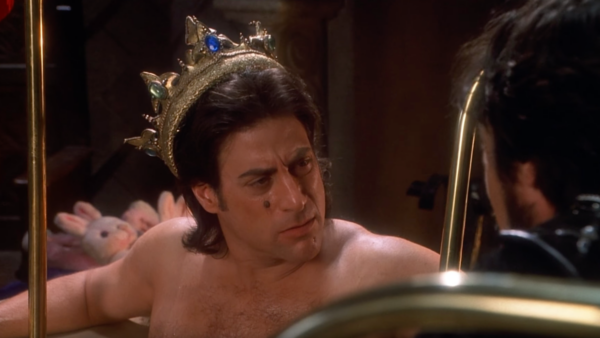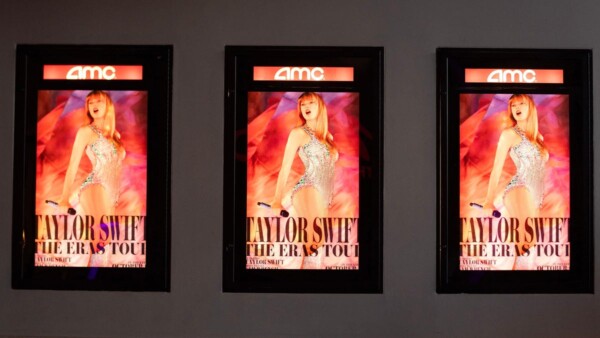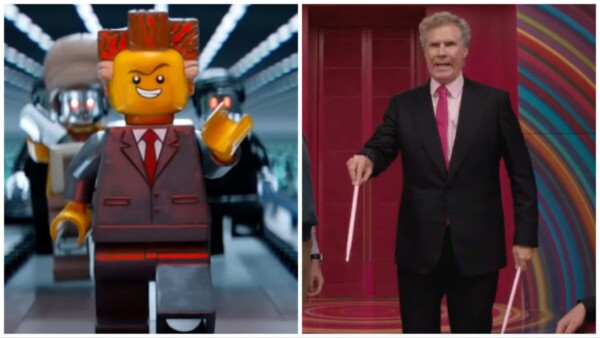John Cena fucked up.
It happens, right? Put someone on camera—say, promoting their new Fast And The Furious movie—for hour after hour, day after day, interview after interview, and a fuck-up is probably inevitable. (Especially if, as was Cena’s case, that someone is a native English speaker answering questions in Mandarin.) John Cena fucked up—a term we’re using here as an ethics-neutral, catch-all term for making a lot of people very angry, all at once—in a very simple, but costly way, though: He called Taiwan a country.
Alfonso Ribeiro on working with Tyra Banks and his favorite dancers
We can only imagine the faces of Cena’s PR handlers in that moment. All the work that presumably went into prepping him, vetting him, typing up fact sheets and primers to keep him on-topic—all gone in an instant, as their international movie star unthinkingly uttered a set of words that would immediately alienate F9 from the world’s biggest international movie market. Right now, China is the one celebrity fuck-up Cena’s Hollywood bosses can’t abide.
Taiwan is pretty damn sure it’s a country (with a democratic regime), but news of Cena’s “gaffe” traveled fast in China, which considers Taiwan one of its provinces. It spread especially well on Chinese Communist Party-surveilled social media networks, which frequently serve as the wellspring for nationalistic outcries that can be indistinguishable from CCP party lines. Even an apology, and pledges of deep-held respect from Cena, could only go some of the way toward undoing that damage. Variety reports that the top response to Cena’s apology video—in which he insisted in Mandarin that “For my mistake, I really, really apologize”—was a demand that he explicitly state that Taiwan is a part of China, lest he be dubbed “two-faced” for his crimes.
This is not, to be clear, an academic issue. China has money. If Hollywood wants it, the logic goes, China gets to dictate the rules. Fate Of The Furious, the Fast franchise’s previous installment, made roughly one-third of its $1.2 billion global box office in China; the country’s support was literally the deciding factor between the film cracking that coveted billion-dollar mark or not. And the Chinese people, and government, have become very conscious about the power they now wield at the global box office. When Paul W.S. Anderson’s Monster Hunter got yanked from Chinese theaters over a joke deemed offensive back in December 2020, it lost millions, mid-COVID, from a market that’s typically been very receptive to its sort of flashy genre fare. God knows how Marvel is going to handle its upcoming Eternals, helmed by recent Oscar winner Chloé Zhao: The Beijing-born director faced backlash on Chinese social media during Nomadland’s awards-season run, following the circulation of a 2013 interview in which she said she grew up in a place “where there are lies everywhere.”
Contrast all of this with the other big “Movie star talks about politics, movie star swiftly wishes they hadn’t talked about politics” story of late: Mark Ruffalo’s decision to call out Israel’s recent (and not-so-recent) treatment of Palestinians as “genocide,” and then his walking back of that statement this week. Ruffalo’s fuck-up—wherever you identify it on the timeline of his initial statement, his abandonment of his initial statement, or his subsequent apology—was a familiar one for observers of modern celebrity. It is not a new complaint to bemoan the fact that actors are often given massive platforms through which to express opinions they have no real place or expertise in expressing, and vocal leftist/liberal Mark Ruffalo isn’t alone in having thoughts—multiple thoughts, apparently—that people disagree with re: Israel and Palestine. (Even if, in our personal opinion, he looked pretty goddamn mealy-mouthed turning his back on people getting bombs dropped on their heads.) It’s just that Ruffalo, by nature of his celebrity, is a lot louder when he expresses those thoughts, just like every other actor who’s run their mouth off on politics for the last century or so. “Fucking up by getting vocal about politics” is, in fact, a venerable part of the celebrity experience, with a long history of fucking-up precedents to fall comfortably back upon.
Social media has sharpened and refined this cycle in recent years. It’s ironic that this is where we’re talking about “cancel culture” in this piece, rather than the bit where a state is tacitly threatening to censor a film over a star’s off-hand comment, but the basic mechanisms of backlash and counter-backlash are fundamentally intact. Ruffalo might face some consequences for his statements, whether from disappointed fans, or his regular employers at Disney, or just from people throwing up their hands and screaming “Oh, who gives a fuck!” at the heavens. But at least he knew, and understood, what he was getting into when he made them. The long-term impact of his words are harder to track. Perhaps they could one day have influence on aid to Palestine, on attitudes toward Israel’s actions, on the frequently touted but largely inaccurate assessment of the West Bank as an “intractable, too-complicated” issue. But in the short term? Just another famous, spouting off some thoughts. The stakes are visibly low.
Cena is in a different boat. In fact, it’s not at all clear whether he has any views on Taiwanese independence; certainly, it doesn’t sound like he has $400 million worth of them. What he’s wandered into, foot-in-mouth-first, then, is a new kind of political fuck-up, one engendered by a world in which national superstardom—and, thus, national palatability—is no longer sufficient for success. Every celebrity must now be perfect (Dwayne Johnson-esque, one might say) in their bland support of all possible “acceptable” positions, planet-wide. (Even when those positions include acceptability to an authoritative, repressive regime—as long as they buy movie tickets.) Otherwise, a PR “fuck-up” could cost the studio hundreds of millions of dollars, and countless people their livelihoods.
The irony of all this is that Cena has spent months cultivating a fandom in China, releasing daily videos in Mandarin expressing his excitement for F9, and it took exactly one out-of-place word to have the expensive ire of a nation turned upon him. This current storm will probably be weathered without any major repercussions, especially since Cena and Universal both seem perfectly happy to eat as much crow as China might demand they shovel down. But the lessons will persist.
It’s easy, for people who’ve been raised on, and immersed in, the old-school version of celebrity political gaffes, to dismiss them as ultimately unimportant. Celebrities talk, and, with a few exceptions where the harm is immediate and obvious, we all typically move on. But there’s a new fuck-up in town, one that screws with studios where they hate to be screwed with: Their money. We might call it unreasonable to expect every superstar actor to also be an expert in diplomacy, geography, and centuries-old political grudges. We might call it unreasonable to accede to the wishes of an autocratic regime that stifles free speech at every turn. Well, unreasonable or not, those are about to become de rigueur survival skills, enforced by PR warriors in droves. Congratulations, John Cena: You just became a new textbook case for teaching famous people how not to utterly fuck up.
Le texte ci-dessus est une traduction automatique. Source: https://www.avclub.com/john-cena-learned-the-hard-way-china-is-the-one-fuck-u-1846969757?rand=21409



















